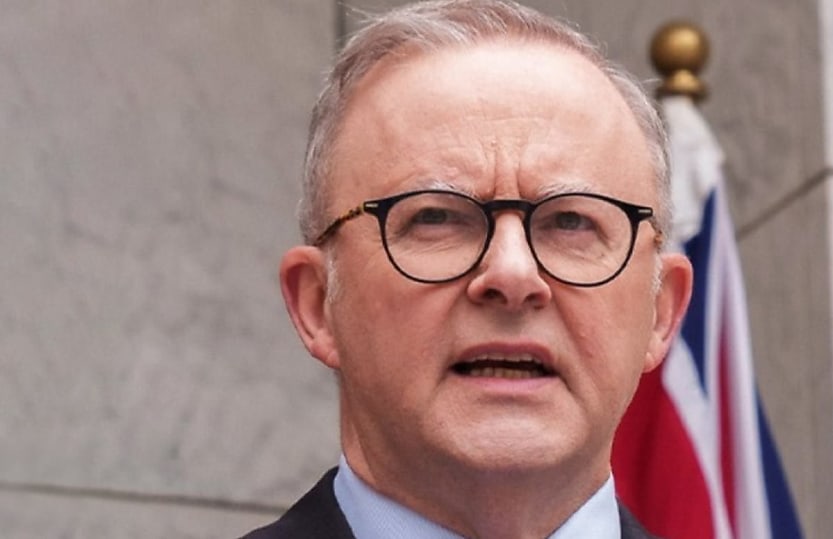Australia will not impose retaliatory tariffs on US, prime minister says

The White House has not granted Australia an exemption from 25 per cent tariffs on steel and aluminium, set to take effect from Wednesday.
Prime Minister Anthony Albanese slammed US President Donald Trump’s decision to levy tariffs indiscriminately, calling the decision “entirely unjustified.” He clarified that Australia would not retaliate with tariffs of its own.
“Tariffs and escalating trade tensions are a form of economic self-harm and a recipe for slower growth and higher inflation,” Albanese said in a Wednesday media statement.
“This is why Australia will not be imposing reciprocal tariffs on the United States. Such a course of action would only push up prices for Australian consumers.”
Albanese said his government would continue to press the US for an exemption, noting that the previous tariff exemptions secured by former prime minister Malcolm Turnbull were granted after months of negotiation.
However, a popular argument that Australian politicians have used to negotiate tariff exemptions – its trade deficit with the US – has been scuppered after news emerged that Australia recorded its first monthly trade surplus with the US after a surprise surge in gold exports.
Furthermore, it appears as though exemptions may be harder to secure this time around, with Trump set on closing tariff loopholes which he believes threaten US national security.
"He considered it, and considered against it. There will be no exemptions,” White House spokeswoman Karoline Leavitt told ABC News.
Albanese said Australia would continue to diversify markets for its products, which are “in demand globally.”
Daniel Hunter, chief executive of Business NSW, echoed this sentiment: “There is very strong demand for NSW and Australian products around the world. We have no doubt there will be plenty of alternative markets.
“It’s time for our political and business leaders from across the spectrum to support our SME manufacturing sector and the communities they serve.”
Albanese said Australian steel and aluminium exports to the US only made up 0.2 per cent of the total value of the nation's export market, meaning that the direct economic impacts of the tariffs are likely to be contained.
While direct impacts are unlikely to be significant, the broader effects of a global trade war will weigh on the Australian economy.
Dr Scott French, economics lecturer at UNSW, said Australia may see an influx of manufactured goods from markets in the Indo-Pacific as trade is diverted away from the US.
A flood of supply could displace domestic manufacturing, but French warned that Australia should resist imposing protective tariffs for these industries, as they could lead to a long-term dependence on protectionist policies.
“Australia has done well by having very low trade barriers,” he said.
“I think maintaining competitiveness is important, and I would strongly caution against trying to enact any sort of protective tariffs to isolate the domestic market for these products.”
For policymakers looking to support industries disrupted by the trade policies, French said targeted and temporary measures similar to Australia’s JobKeeper could be effective at cushioning affected businesses without creating long-term reliance on government assistance.
“Once protective tariffs are there, then you create a lobbying group to keep protective tariffs in place, and it's hard to get rid of them in the future. So you want to target the response and ensure that it’s temporary.”
About the author

